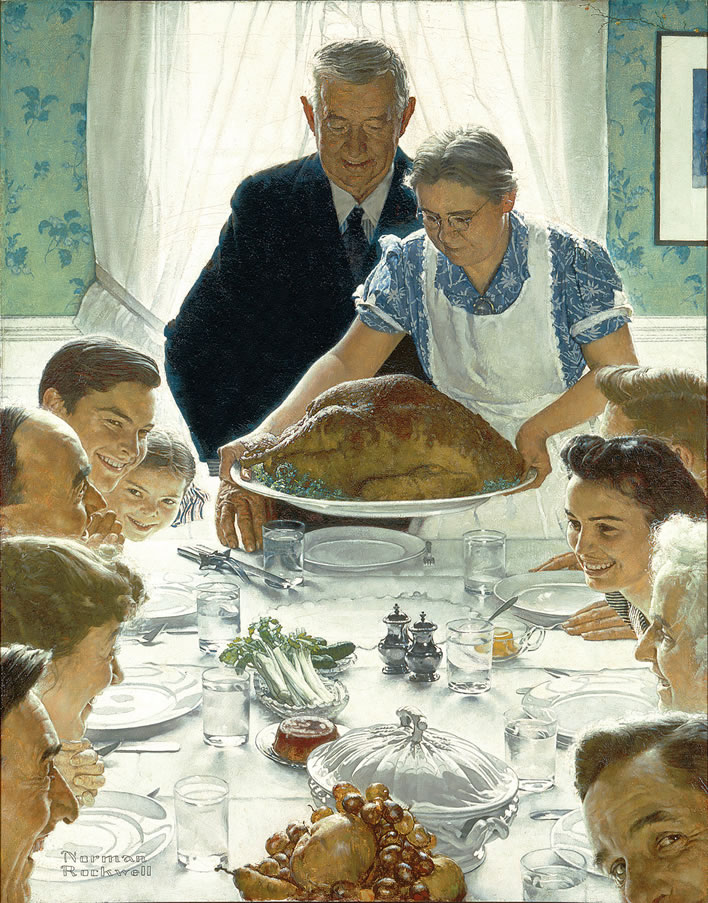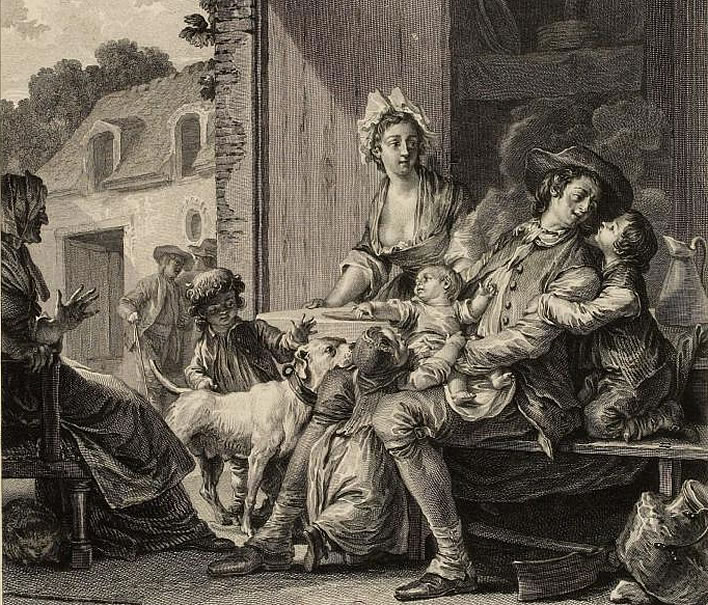The pursuit of happiness
Richard Law, UTC 2017-06-19 10:43 Updated on UTC 2017-06-20
We've all heard or read that the Eskimo supposedly have {insert some large number} words for 'snow'. It's fun. It's also wrong – but inconsequentially so.
Enter Ben Lawrence, the culture reviewer currently writing for the UK Telegraph. He reviews music, theatre and TV. In a recent interview with the German composer Hans Zimmer, he started his piece by launching another comparative vocabulary meme:
The Germans don't have a word for happiness. Glück comes close but really that means luck. They do, however, have several words for suicide.
The punctuation here seems OK, but that is about the only thing that is. Without hammering too hard on this walnut, let's try and prise it apart.
People and language
'The Germans' is a sloppy personification of what really should be 'the German language'. Mr Palmer has just upset about nine million Austrians and about five million Swiss who speak that language or a dialect of it as their mother-tongue. Oh well, they've learned to live with German cultural domination down the ages.
In the same way, the poor 'Eskimo' have to put up with the outsider's view of them as one homogeneous people speaking one homogeneous language, a people who, when they are not reading this blog, spend the long evenings in an igloo chatting about snow.
If only on these grounds we could reasonably dismiss with a waft of the mouse both assertions about comparative vocabulary and go for a cup of tea. However, duty calls. Let's waste some time in the cause of truth.
Happiness
Let's consider the word 'happiness'. According to the OED, the root of 'happy', 'happiness' and the rest of this tribe is 'hap', a Middle English word from the Nordic tradition, now designated 'archaic'. Its original meaning was chance, (good) luck, (good) fortune etc. We still use it with these meanings nowadays in words such as 'happen', 'happenstance' and phrases such as 'as it happens'.
Gradually, the 'hap' words accreted a further meaning: the state of someone who has had good fortune. The OED puts it well:
Happiness 2. The state of pleasurable content of mind, which results from success or the attainment of what is considered good. 1591.
Through time 'happy' and 'happiness' have developed further to describe some causeless state of grace. Perhaps Buddhism may be an influence in this, or our modern obsession with chemically altered states of mind, or both. Or something else, who knows? 'Happiness is egg-shaped', Britons used to be told by their Egg Marketing Board.

The state of happiness is contingent upon prior beneficial conditions. Norman Rockwell, Freedom from Want, 1943.
The normal human however, when deprived of chemical and spiritual assistance, requires the existence of desirable conditions to create happiness. It is difficult to imagine a soldier up to his waist in the mud of Passchendaele being happy, except in the sense of 'currently still alive'. But, when you think about it, even that modest requirement is conditional upon that fickle hussy, Fortuna– the next bullet, the next shell, the next Woodbine.
All the many synonyms of the happy words – 'blessed', 'content' and so on – stand on the base of good fortune: 'luck'.
Glück
This situation has its exact parallel in German. Whereas English acquired 'hap' from Scandinavian sources, German took 'Glück' from some unknown source via Middle High German, Middle Low German and Middle Dutch. In all these manifestations it expresses just the way that 'hap' does that causal link between good fortune and the mental state it produces.
Mr Palmer's statement 'Glück comes close but really that means luck' is therefore nonsense, a fact that we can easily demonstrate empirically.
In Switzerland a large humanitarian aid organization calls itself in German the Glückskette. The official title of this organization in English is not very illuminating – 'Swiss Solidarity' – but the French title, which came first, reflects both 'luck' and 'happiness', but mainly 'happiness': La Chaîne du Bonheur.

The image that le bonheur calls up in the French mind.
Jean Michel Moreau (Moreau le Jeune) (1741–1814), Le Vrai Bonheur, 'True Happiness', 1776? Engraving by Jean-Baptiste Blaise Simonet (1742-1813+), 1782. Image: Paris Musées.
Glückskette was the title thought up later for Swiss German speakers. Italian speakers got 'solidarity' in La Catena della Solidarietà and Romontsch speakers got Chadaina da Fortuna (in the unified rumantsch grischun spelling), 'Chain of Fortune', a surprising, literal translation from German meaning almost exclusively 'luck'. There are other words in romontsch which would have represented happiness better: cletg, the romontsch derivation of Glück, or felicitad [from Latin felicitas, 'happiness/blessed'], but for some reason the romontsch translator chose to make the organization sound like a lottery company.
Make of all these iridescent multilingual meanings what you will, but before the foundation of the charitable organization in 1946 overwhelmed the usage of Glückskette, a German speaker might have walked into a jewellers and asked for one of these, meaning a necklace chain with a lucky charm such as a four-leaf clover suspended from it.
Our empirical conclusion: Glück doesn't really mean luck, it also means luck – fortune being the basis of happiness.
Semantic fields
The real difficulty facing Mr Palmer is that he is trying to go from a single word in one language to a single word in another. Real languages don't work like that, otherwise the world would have had the translation problem and Steiner's 'Babel problem' licked centuries ago.
These days we talk of 'semantic fields'. Mr Palmer takes one word, 'happiness' and ignores all the other words he might have used. Treating the concept of semantic field cavalierly, we might just list the synonyms for 'happiness' given by the online Oxford Dictionary:
contentment, pleasure, contentedness, satisfaction, cheerfulness, cheeriness, merriment, merriness, gaiety, joy, joyfulness, joyousness, joviality, jollity, jolliness, glee, blitheness, carefreeness, gladness, delight, good spirits, high spirits, light-heartedness, good cheer, well-being, enjoyment, felicity.
Oxford dictionaries online: happiness.
In German, if we take the semantic field represented by the synonyms of 'das Glück' as listed by Duden Online we are given:
Glücksfall, Glückssache, Glücksstern, Glücksumstand, Gunst/günstige Fügung des Schicksals, günstiger Verlauf, günstiger Zufall, günstige Umstände, Heil; (gehoben) glücklicher/guter Stern, glückliches/günstiges Geschick; (dichterisch) Freudenbecher; (umgangssprachlich) Dusel, Schwein; (salopp) Massel. Glücksgöttin; (gehoben) Fortuna. Beglückung, Freude, Glückseligkeit, Hochgefühl, Segen; (gehoben) Beseligung, Wonne.
Duden online: Glück.
We could extend this list dramatically if we allowed ourselves a few more phrases such as 'glücklich sein' and also merged related semantic fields such as 'Seligkeit' and 'Freude'. Our favourite here for 'happiness' would be 'Wonne', which produces an even more extended semantic field of happy things:
Begeisterung, Behagen, Freude, Glück, Heiterkeit, Hochgefühl, Seligkeit, Vergnügen, Vergnügtheit, Wohlbehagen, Wohlgefallen; (gehoben) Beglückung, Entzücken, Ergötzen, Frohmut, Glückseligkeit, Wonnegefühl; (bildungssprachlich veraltend) Gaudium; (landschaftlich, sonst veraltend) Pläsier.
Duden online: Wonne.
We have not translated these German synonyms, to do so would just entangle us in a lot of other nuances in English. It is enough to refute Mr Palmer's remark just to show the quantity involved.
The conclusion has to be that German is not short of words and phrases to express the state of happiness or its like – if anything it has more than English does – but that a correct, satisfying translation demands attention to nuances.
German is after all the language of Schiller's An die Freude (1785), known to the English as the Ode to Joy. As a result of the interest of our website in Schubert and the history of the 18th century in Europe we are often faced with translation problems when we try to express the happy moods of those times – the blessedness, the joy – in modern English.
For example, in their letters to each other the members of the Freundeskreise, the 'Circles of Friends' around Schubert expressed their emotions unreservedly. Such undisguised exclamations of joy and affection have even led some English and American scholars, thinking such language camp, to posit homosexual relations among these young men. Absurd.
In contrast, the happiness words seem to have atrophied in English. For an example see our attempt to produce an English version of Stolberg's joy-filled masterpiece Lied auf dem Wasser zu singen.
Making an end of it
And what about Mr Palmer's gloomy apposition: '[The Germans] do, however, have several words for suicide'?
Once again, if we take our focus off single words there are indeed a number of expressions in English for 'suicide'. For example 'killing yourself', 'topping yourself', 'putting an end to it all'.
True, the list of synonyms for suicide in the Oxford online dictionary is not overflowing:
self-destruction, taking one's own life, self-murder, self-slaughter, felo de se.
Oxford dictionaries online: suicide.
German only has a few, too, but these are used in different language contexts – different registers, to be precise. The core meaning is 'Selbstmord':
Selbstvernichtung; (gehoben) Selbstentleibung; (bildungssprachlich) Suizid; (verhüllend) Freitod; (Amtssprache) Selbsttötung
Duden online: Selbstmord.
We would add to this list some phrases such as 'sich das Leben nehmen' and 'dem Leben ein Ende setzen'.
One of the reasons for the variety of words in German is that 'Suizid' is an alien word – Duden calls it bildungssprachlich, 'educated German'. 'Selbstmord' is everyday but rather harsh. 'Freitod' was popularised by Friedrich Nietzsche and has a neutral dignity. 'Selbsttötung' is Amtssprache, the 'language of German of officialdom'.
We have moved from Eskimo obsessing about snow to humourless Germans, incapable of pleasure and brooding on suicide. Not true, Mr Palmer, simply not true. But has our tedious hammering on your three, short, nonsensical sentences been worth it? No, it was no fun at all.
Update 20.06.2017
Some small errors corrected. The argumentation in the section on the Glückskette has been improved and an image added.
0 Comments UTC Loaded:
Input rules for comments: No HTML, no images. Comments can be nested to a depth of eight. Surround a long quotation with curly braces: {blockquote}. Well-formed URLs will be rendered as links automatically. Do not click on links unless you are confident that they are safe. You have been warned!